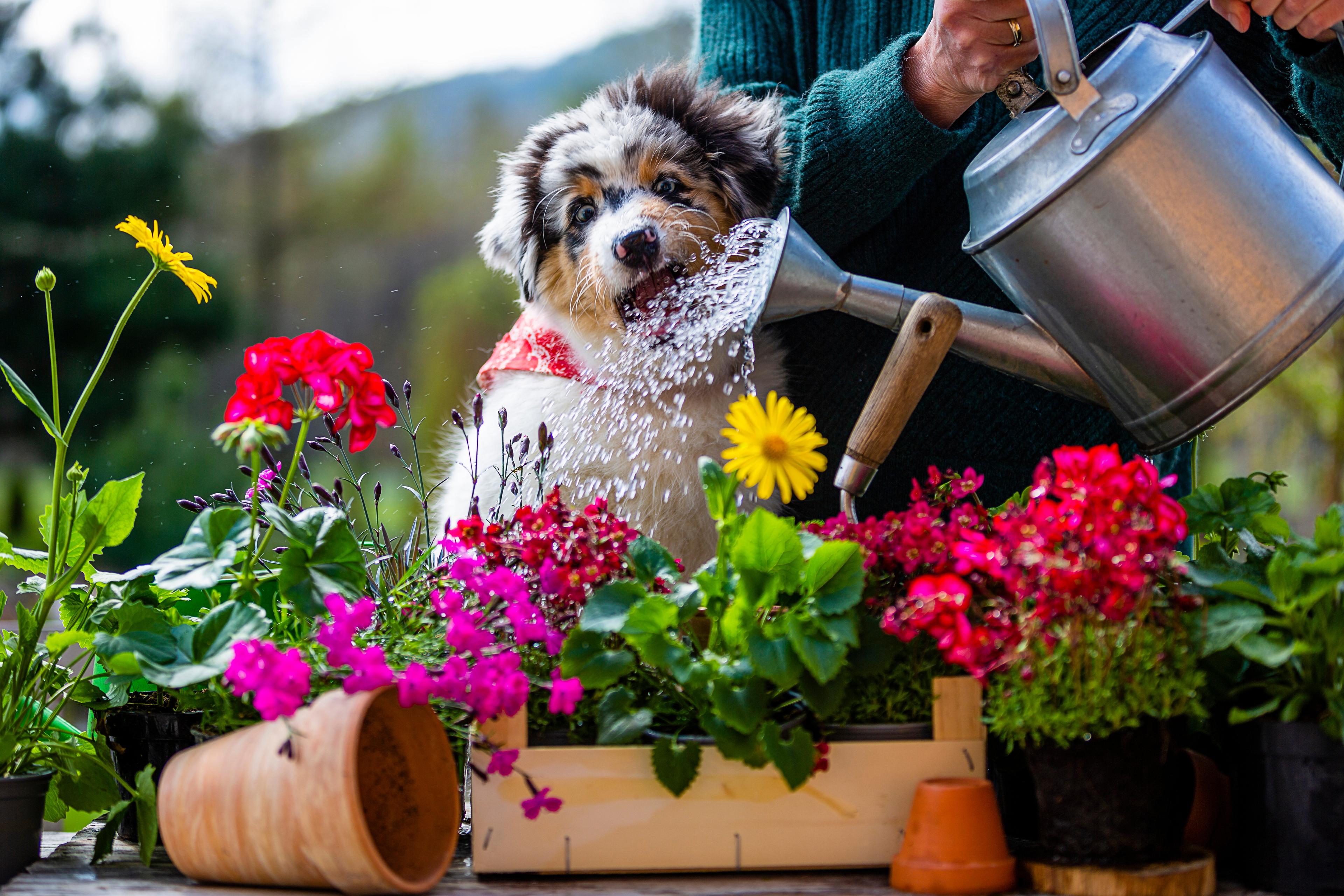Houseplants can add beauty and freshness to your home, but it's essential to be aware that some plants can pose a danger to our furry companions. Dogs, curious by nature, may be tempted to chew on plants, putting them at risk of poisoning.
As responsible pet owners, it's crucial to be mindful of the plants we bring into our homes and ensure they are safe for our furry friends. By avoiding toxic houseplants and providing alternatives for your dog to chew on, you can create a safe environment where both your plants and pets can thrive. Which indoor plants are safe for dogs and which ones are not?
Sago Palm (Cycas Revoluta)
All parts of the Sago Palm are highly toxic to dogs, with the seeds being the most dangerous. Ingestion of any part of the plant can cause severe vomiting, diarrhea, liver failure, and even death. The toxins in Sago Palms, cycasin and BMAA, damage the liver and nervous system, making it a very serious health risk for dogs1.
Fiddle Leaf Fig (Ficus Lyrata)
The Fiddle Leaf Fig, with its broad, glossy leaves, is a popular houseplant choice. However, it contains sap that can irritate your dog's mouth, throat, and stomach, leading to symptoms such as vomiting, diarrhea, and pawing at the mouth1.
Peace Lily (Spathiphyllum spp.)
While Peace Lilies are known for their elegant white flowers, they contain insoluble calcium oxalate crystals that can cause mouth irritation and pain if ingested by your dog. Symptoms may include drooling, pawing at the mouth, and difficulty swallowing1.
Aloe Vera (Aloe Barbadensis Miller)
Aloe Vera is prized for its medicinal properties in humans, but the outer rind of the plant contains saponins, which can be toxic to dogs. Ingestion of Aloe Vera may result in vomiting, diarrhea, tremors, or muscle weakness in your pet1.
Jade Plant (Crassula Ovata)
The Jade Plant, also known as the money tree, contains toxins that can cause gastrointestinal upset in dogs, including vomiting, diarrhea, and depression1.
Snake Plant (Dracaena Trifasciata)
Snake Plants are popular for their air-purifying properties, but they contain saponins that can irritate your dog's stomach and intestines. Ingestion of Snake Plant may lead to vomiting and diarrhea in your pet1.
English Ivy (Hedera Helix)
English Ivy contains triterpenoid saponins, which can cause gastrointestinal irritation in dogs. Symptoms of poisoning may include drooling, vomiting, diarrhea, and abdominal pain1.
Swiss Cheese Plant (Monstera Deliciosa)
The Swiss Cheese Plant, with its unique leaves, contains insoluble calcium oxalate crystals that can irritate your dog's mouth and stomach. This may result in vomiting, diarrhea, and pawing at the mouth1.
Chinese Evergreen (Aglaonema Commutatum)
Chinese Evergreens contain calcium oxalate crystals similar to Peace Lilies, leading to mouth irritation and difficulty swallowing in dogs1.
Weeping Fig (Ficus Benjamina)
The Weeping Fig, like the Fiddle Leaf Fig, contains sap that can irritate your dog's mouth, throat, and stomach, resulting in vomiting, diarrhea, and mouth irritation.
What to Do If Your Dog Eats Something Toxic
If you suspect your dog has ingested a toxic substance like the plants mentioned above, swift action is crucial to prevent further harm. Here's a step-by-step guide on what to do:
Remain Calm and Assess the Situation: Panicking won't help your dog. Take a moment to evaluate the situation calmly, noting what your dog consumed and the time of ingestion.
Contact Your 24/7 Telehealth Service: Immediately reach out to your 24/7 available Telehealth service, included with every Spot Pet plan. Provide them with detailed information about the ingestion.
Do Not Induce Vomiting: Resist the urge to induce vomiting, as this could worsen the situation. Follow your vet's instructions carefully.
Transport Your Dog to the Veterinary Clinic: If advised by your vet, safely transport your dog to the clinic.
Monitor Your Dog's Condition: Upon arrival, your dog will undergo examination and receive appropriate treatment. Stay informed about their condition and follow your vet's instructions diligently.
Treatment for Toxic Ingestion
Treatment for toxic ingestion will vary based on the severity of the intoxication and your dog's overall health. Common treatment measures include:
Monitoring Vital Signs: Close monitoring of your dog's vital signs, including heart rate and blood pressure.
Supportive Care: Administration of IV fluids and electrolyte therapy to maintain hydration and balance.
Medication: Anti-nausea medication may be prescribed to control vomiting, along with sedatives or anticonvulsants in severe cases.
As responsible pet parents, it's our duty to help ensure the safety and well-being of our beloved companions. By staying informed and proactive, we can help protect our pets from potential hazards and enjoy many more happy moments together.
Insurance plans are underwritten by either Independence American Insurance Company (NAIC #26581. A Delaware insurance company located at 11333 N. Scottsdale Rd, Ste. 160, Scottsdale, AZ 85254) or United StatesFire Insurance Company (NAIC #21113. Morristown, NJ), and are produced by Spot Pet Insurance Services, LLC. (NPN # 19246385. 990 Biscayne Blvd Suite 603, Miami, FL 33132. CA License #6000188).
Contact
Melina Acra
melina@spotpet.com
“Poisonous Plants,” ASPCA, https://www.aspca.org/pet-care/animal-poison-control/toxic-and-non-toxic-plants, Feb.15,2024












